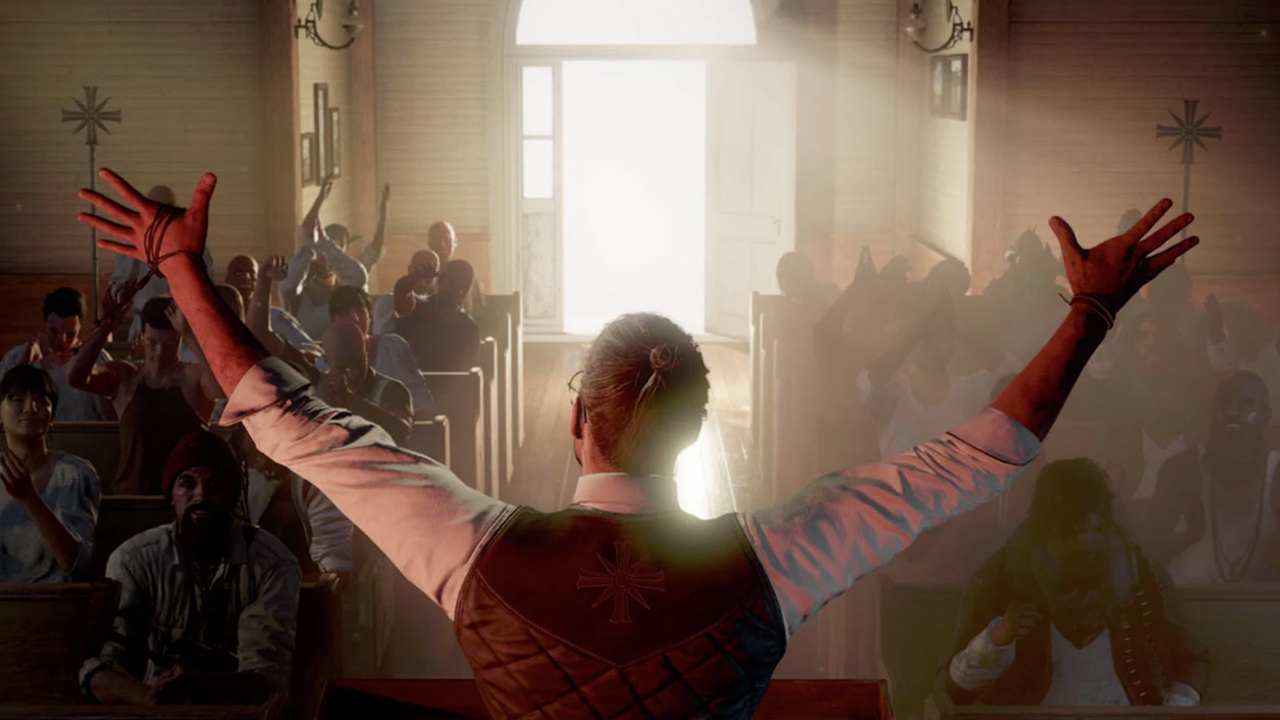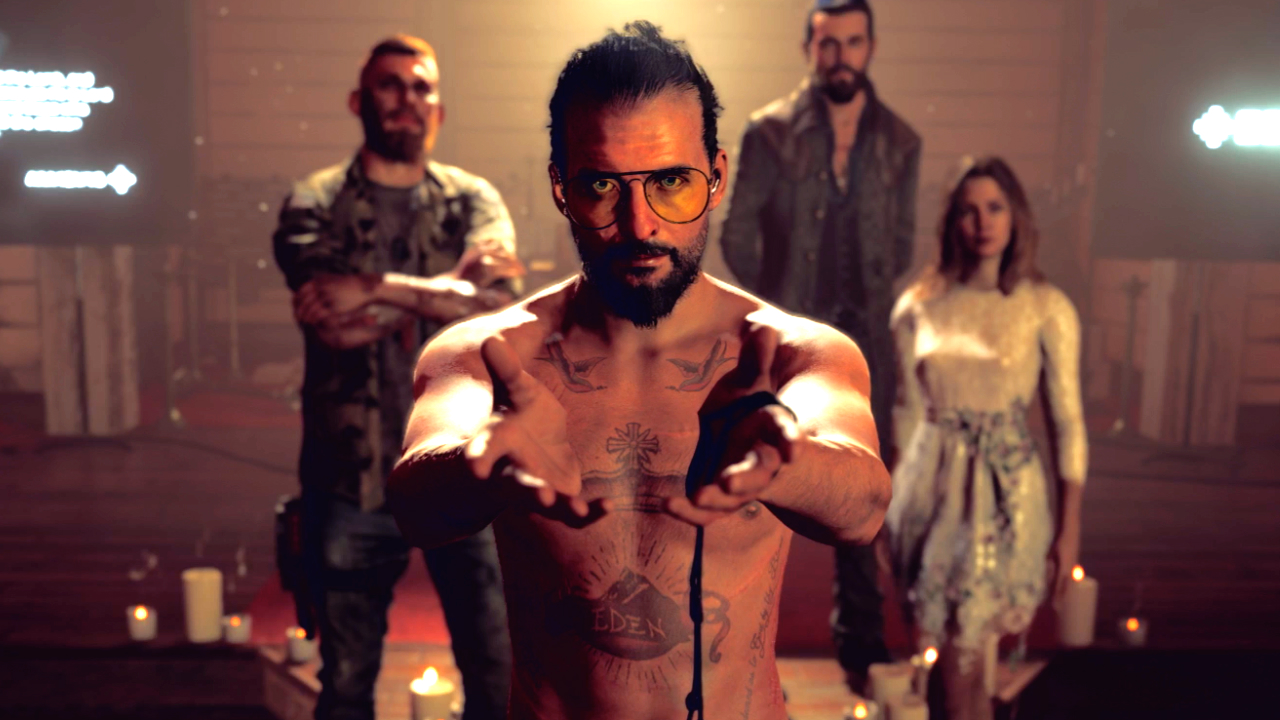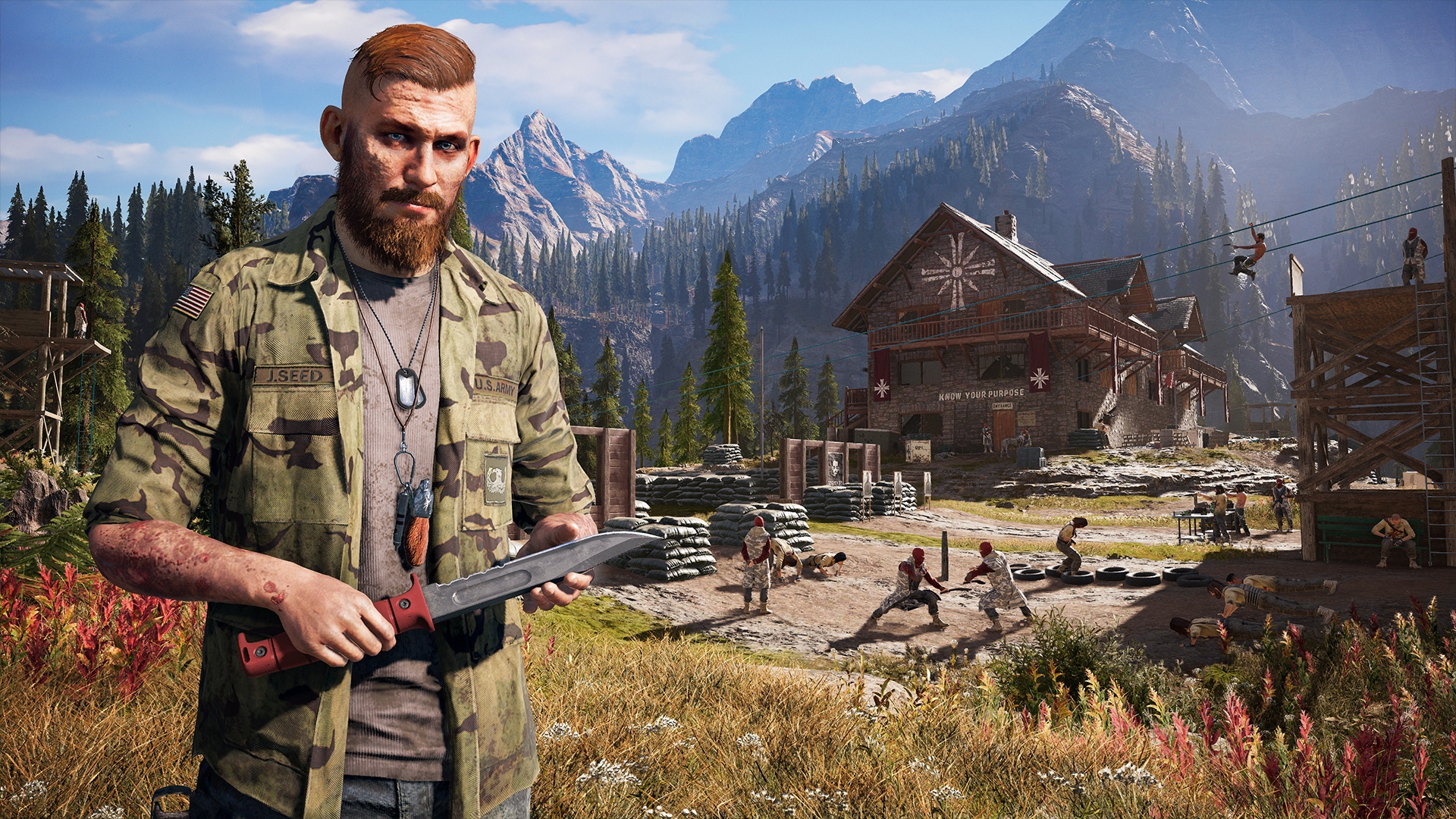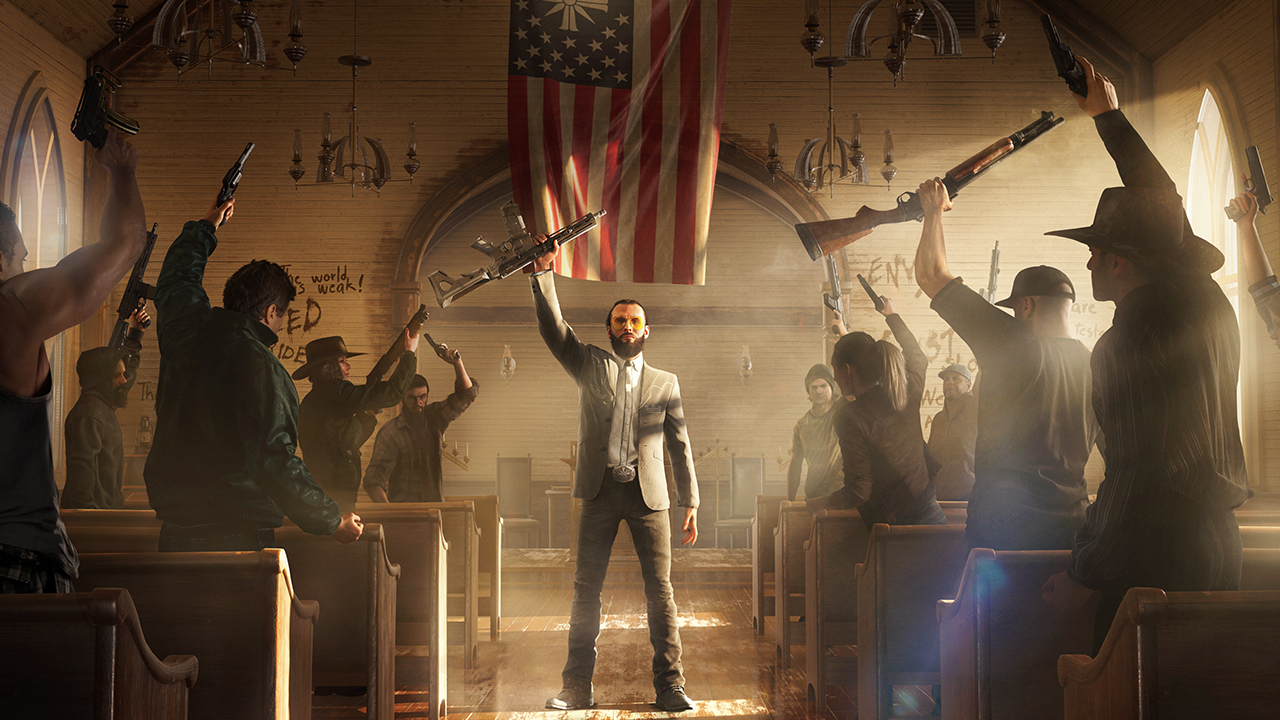When it comes to controversy, Far Cry 5 will be on the right side of history
Far Cry 5 may have drawn heat for its setting and subject, but it'll likely be seen as hugely progressive in the future

When Ubisoft announced Far Cry 5 last May, it probably had some idea it was going to touch a nerve. Indeed, the planned setting — a community in small-town Montana ruled by a militaristic doomsday cult called the Project at Eden’s Gate — had taken on a timely new dimension since the rise of the alt-right and the ascent to office of Donald Trump, developments that would have been difficult for anyone at Ubisoft to predict when conceiving of the game years prior. Suddenly the story of nefarious religious despot Joseph Seed looked an awful lot like an attempt at pointed political satire, and the more white nationalists and emboldened fundamentalists endeavored to Make America Great Again, the more relevant Far Cry 5 couldn’t help but seem.
Naturally, the right balked. Gamers indignant about the milieu complained that Far Cry 5 represented nothing less than a “white genocide simulator.” On Twitter, irate fans railed against Ubisoft for caving to the demands of the dreaded Social Justice Warriors, suggesting the game’s antagonists ought to be Islamists or inner-city gangs instead of rural white Americans minding their business in the south. A much-circulated Change.org petition called for Ubisoft to cancel the game: “We, the American gamers that make up the majority of your user-base, demand to you cancel this game [sic], or alter it to be less offensive to your main player base.” Since Far Cry 5 was released at the end of March, complaints of this nature have continued to proliferate in forums and social media unabated.

Nor was this Ubisoft’s first encounter with condemnation. Far Cry 3 was widely criticized for its almost quaintly old-fashioned issues with race: its hero is a quintessential White Saviour named Jason Brody - the most white American dude-bro name in gaming history, surely - plunged into peril in an exotic land of deadly pirates and noble natives. (There is also, unforgettably, an episode in which your character is bestowed ‘tribal tattoos’ that allow him to ‘access his inner warrior’.) So tenacious were the criticisms of the game’s problematic politics that its lead writer, Jeff Yohalem, defended himself by claiming the colonialist bent was intentional, and made a subversive point. “Exaggerating those tropes is how you reveal them,” he later insisted, convincing nobody.
Three sequels later - Far Cry 4 (also colonialist), Far Cry Primal (vaguely racist in different ways), and now Far Cry 5 (offensive to the alt-right) - it might seem to Ubisoft like it simply can’t win. Observe the conventions of the status quo and draw the ire of the left. Buck those conventions for a more forward-thinking ideal and attract the chagrin of the right. Either way, it seems, controversy is a serious danger - often with consequences to prestige (such as when a high-profile think-piece or battery of negative reviews sullies the reputation of the studio) or to the publisher’s bottom line (such as when a grassroots boycott catches on - see the Star Wars: Battlefront 2 microtransactions scandal). The question posed is this: given the option, is one kind of outrage better than another? Are some controversies better than others?

In 1968, as America was knee-deep in Da Nang, John Wayne made a movie called The Green Berets, which he hoped would persuade skeptical young Americans that the war in Vietnam was a fine idea. Wayne meant well, and indeed believed he was performing his duty as a patriot. But the result of his flag-waving efforts was a film so distasteful, narrow-minded, and indefensibly racist that only militant warmongers could endorse its retrograde posturing. “It is so full of its own caricature of patriotism that it cannot even find the right things to falsify,” Renata Adler wrote in a review of the film for the New York Times. “Vile and insane,” the picture was “an outrage and a travesty.” Many others agreed.
Let’s leap ahead 20 years. In 1991, at the height of the AIDS crisis in America, Todd Haynes made a movie called Poison, a triptych of radical queer stories inspired by the playwright Jean Genet. Haynes’s film, too, aroused vociferous outrage - this time from the far right. Christian activists denounced it as blasphemous. Republican congressmen called it pornographic, and lambasted the National Endowment for the Arts for having provided Haynes funding. A senator’s wife claimed the movie made her want to “bathe in Clorox.” Another, often quoted now by Haynes and his admirers with pride, dubbed him “the Fellini of fellatio.” It was a bona fide cause celebre. Pundits and scandalized broadsheet columnists the world over weighed in.

Both The Green Berets and Poison were exceptionally controversial. Both were criticized for what you might call their political disposition. Both were maligned with passion by those who took offence. And both were no doubt the cause of considerable headaches for their directors, who were obliged to defend their well-meaning creations and answer to the qualms of the offended parties. But are these controversies really so alike? The Green Berets was attacked for being problematic: it’s a reactionary, nationalistic, xenophobic, intolerant movie made in support of an indefensible war. Poison, on the other hand, was attacked for being too progressive: it’s an enlightened, open-minded, libertine movie made with deep affection for queer culture and a candid attitude toward sex. In terms of ideology they could hardly be less alike.
Weekly digests, tales from the communities you love, and more
Time has meanwhile had an interesting effect. The respective reputations of these films have veered in opposite directions: Poison is considered a pioneering movie in what came to be known as New Queer Cinema, cheered as an early coup in an acclaimed director’s celebrated career. The Green Berets tends to be remembered as a catastrophic blunder, to the extent that it is remembered at all. More saliently, the criticisms that each film drew at the time of their release seem different so many years later: the tirades against Poison and its frankness around sexuality seem patently ridiculous in 2018, impossible to take seriously as reasons to dismiss a film; the criticisms hurled at The Green Berets, by contrast, strike modern readers as self-evident, as the Vietnam war fell into universal disfavour and the film’s jigonism seems perfectly clear.

In other words, time vindicated one line of attack but not the other. Which does of course tend to be how these things go. Time generally does prove conservative fears wrong and liberal concerns obvious - not a partisan divide so much as a basic philosophical one. The work of art hampered by racism, or sexism, or homophobia, or virtually any problem of representation or politics, will likely find their stature diminished as the days go by: even those works so otherwise great they must endure will do so with an asterisk, such as, say, Birth of a Nation. The work of art protested on grounds of its overly progressive inclinations, on the contrary, will often emerge as commendably ahead of its time.
Ubisoft should therefore take comfort in the nature of the controversy they’re now arousing. They’ve earned the right kind of ire: complaints that Far Cry 5 villainizes the alt-right are ridiculous enough in 2018, but in another ten years they’ll seem resoundingly idiotic. The saga of Hope County and its travails with violent fundamentalists will see, if anything, shockingly prescient, or in the very least attuned to the very real turmoil circulating around the United States at this moment. The rallies of Nazis in Charlottesville, the bombastic speechifying of alt-right talking heads like Richard Spencer, and yes, even the various indignities of Trump himself, are all the resonant targets of the game, even if the specifics were largely inadvertent. And this is an unequivocal improvement over the White Savior lunacy of Far Cry 3, make no mistake. Time will prove the game on the right side of history, and make clear that some controversies are better than others.


